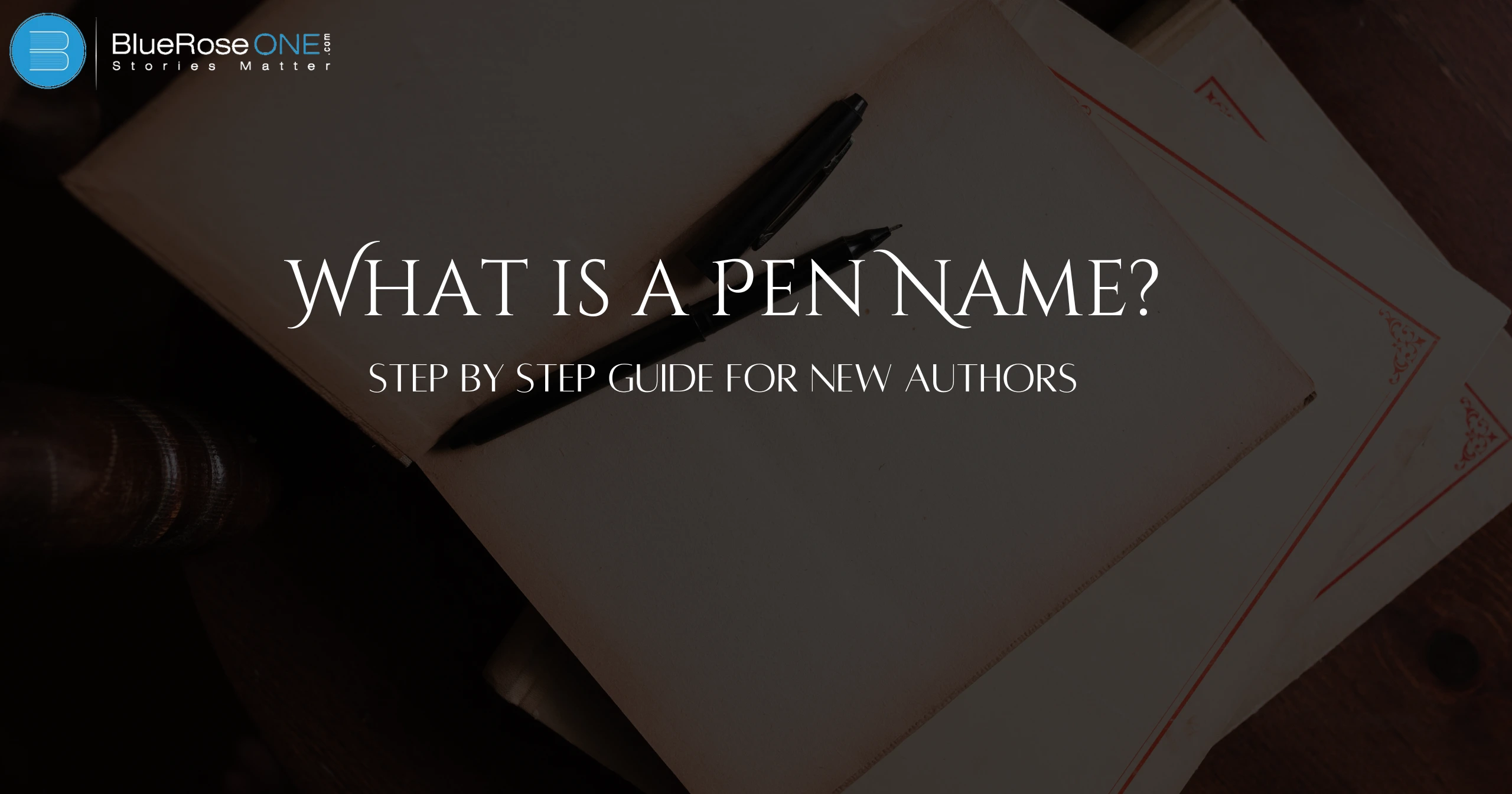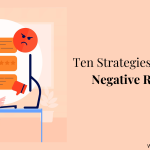A pen name, sometimes referred to as a nom de plume or pseudonym, is a false name that writers adopt when they publish their writing. For a number of tactical and strategic reasons, this enables authors to keep their personal identities apart from their published work. However, what precisely goes into coming up with and maintaining a pen name, particularly for a first-time writer? Let’s explore all the information you require.
You may also like: Nevery Say Goodbye a Book By Hilary Green
Benefits of Using a Pen Name
For new writers, a pen name can offer significant advantages:
Protecting Personal Identity:An author’s identity can be safeguarded by using a pen name, which creates a barrier of secrecy between their personal and professional lives. This is particularly helpful for authors who write about delicate or divisive subjects because using a pen name helps keep their true name hidden from the public. Using a pen name lowers the possibility of unwanted attention for writers who would rather live a private life, enabling them to freely express their thoughts without worrying about personal consequences.
Creating Genre-Specific Brands: One of the main advantages of having a pen name is the creation of a brand that is distinctive to a particular genre. Authors who write in a variety of genres might create unique personas for each readership by using different pen names. This method helps writers stay consistent with their tone, storytelling style, and genre expectations while also avoiding reader confusion. Greater creative freedom is also made possible by pen names, which provide writers with a new persona that speaks directly to particular genres—from science fiction to romance—and guarantees that their writing will be appreciated by the intended audience.
Overcoming Biases: Authors can get over prejudices in the literary community by using a pen name. For example, authors might attract readers who would evaluate their work based on factors like gender, age, or cultural background by using a pen name. Authors can make sure their writings are evaluated on the basis of their merits rather than their personal traits by using a neutral or diversified pen name. This flexibility gives up-and-coming authors an equal chance at success, which makes using a pen name an effective way to create a more equitable reader-writer relationship.
You may also like: What are stock characters? Definition, Examples and Uses.
Types of Pen Names
Choosing the type of pen name that aligns with your goals is crucial. Here are some common types:
Full Pen Names vs. Partial Pen Names: Depending on the author’s intentions, a pen name may be a complete or partial alias. A full pen name offers a complete layer of secrecy or a unique business identity by substituting the author’s full real name. A partial pen name, on the other hand, merely uses the author’s first name, surname name, or initials while keeping some of their true name. While maintaining a personal connection to the writer’s genuine identity, this partial technique permits a certain amount of privacy.
Gender-Swapped Pen Names:When an author adopts a name that is typically associated with a different gender, it’s known as a gender-swapped pen name. This is frequently done to appeal to a wider readership or to conform to genre norms. For instance, in order to draw in male readers, female authors of science fiction and thrillers can choose a masculine pen name. In the same way, men writers may choose feminine pen names for romance-related genres. Authors can reach readers who might otherwise ignore their work because of gender-based prejudices by using gender-swapped pen names.
Initials-Based Pen Names: When an author chooses to use their initials, frequently followed by their last name, in place of their complete name, this is known as an initials-based pen name. This approach is well-liked for establishing a distinctive brand, avoiding gender stereotypes, and introducing mystery. Pen names based on initials were employed by authors such as J.K. Rowling and C.S. Lewis, which made their names distinctive and cross-genre. An initial-based pen name can provide anonymity and a unique author identity for aspiring writers.
You may also like: 10 Best Books on Writing Every Aspiring Author Should Read
Deciding If You Need a Pen Name
Before deciding on a pseudonym, consider your goals:
Assessing Your Goals as an Author: It’s crucial to evaluate your writing objectives while determining whether you require a pen name. Think about the goals you have for your writing. Do you want to keep various genres apart or do you desire privacy? A unique brand and audience can be developed with the aid of a pen name. Additionally, it frees you from the constraints of your true identity to develop your ideas. Your decision to use a pen name effectively will be guided by your ambitions.
Determining Privacy Level: Assessing your degree of privacy is a critical step in considering whether you need a pen name. Authors can shield their identity and add a degree of obscurity by using a pen name to keep their personal lives apart from their writing. For writers who write about delicate subjects or in genres that could draw unwelcome attention, this can be especially crucial. You can keep control over your personal information and develop a professional identity that complements your writing objectives by utilizing a pen name.
You may also like: High Fantasy vs. Low Fantasy A Complete Comparison Guide
Choosing the Right Pen Name
Choosing a pen name should be a thoughtful process. Here’s how to make it effective:
Make It Memorable: To help you stand out in the crowded literary industry, choose a pen name that is unique. A good pen name should be simple to speak and spell so that readers can quickly recall it. Think about choosing a name that reflects your genre or writing style; for instance, a children’s author would benefit from a quirky moniker. To prevent confusion, make sure another author isn’t already using your pen name. In the end, a distinctive and memorable pen name can improve your reputation as a writer.
Ensure Uniqueness: Make sure your pen name is distinctive in order to stand out in the crowded literary market. Having a unique pen name helps readers remember you and keeps you from being confused with other writers. Begin by coming up with a list of names that best represent your genre or style, and then look up previous writers that share your name online. Your chances of success as a new author might be increased by using a distinctive pen name to build your brand and increase the recognition of your writing.
Avoid Complexity: It’s crucial to stay away from complications while picking a pen name. A straightforward, pronounceable pen name makes it easier for people to find your work and helps them remember you. Names that are too complicated can be confusing and turn off potential readers. Choose a simple pen name that accurately captures your writing style. This clarity might improve your author brand by increasing the recognition and accessibility of your pen name in the competitive literary market.
You may also like: What is New Adult Fiction? Everything You Need to Know
Legal Considerations
When it comes to pen names, there are some legal aspects to be aware of:
Copyright and Pen Names: For authors, using a pen name might have significant copyright ramifications. You still own the copyright to your work when you publish under a pen name, but it’s important to register it under your own name. This guarantees that in the event that someone violates your work, you can protect your rights. Additionally, by keeping your personal life and writing job apart, adopting a pen name can help safeguard your identity and personal brand. Any author thinking about using a pen name must be aware of these legal considerations.
Registering Your Pen Name: It’s critical to comprehend the legal ramifications of registering your pen name. For authors, using a pen name or pseudonym might provide benefits related to branding and privacy. However, you might need to register your pen name with the relevant government agency if you intend to publish under it, particularly for trademark or tax considerations. By registering your pen name, you may legally establish it, safeguard your rights, and stop others from using it without your consent.
Handling Contracts and Payments: Contracts and payments must be handled carefully when using a pen name. Writers should make sure that their pen name is stated clearly in all legal papers, including publication contracts. By doing this, the author’s identity is safeguarded and they are guaranteed to get paid using their preferred name. To prevent future problems, it’s also critical to maintain thorough records of all agreements and transactions pertaining to the pen name. Authors can negotiate their writing professions more skilfully if they are aware of these legal considerations.
You may also like: List of Top 10 Best Sylvia Plath Books of All Time
Building a Brand Around Your Pen Name
Once you’ve chosen a pen name, you’ll need to create a brand around it. This helps establish your identity in the literary world.
Social Media Profiles: Building your author brand requires setting up social media accounts under your pen name. A well-written profile demonstrates your writing style and helps you establish a connection with your audience. Use your pen name consistently throughout networks like Twitter, Instagram, and Facebook to establish recognition. Promote your writing, interact with readers, and share your writing process. In addition to increasing your internet visibility, this tactic helps you establish your pen name and makes it stand out in the literary community.
Website and Domain Name: One important step in developing a brand around your pen name is setting up a website and obtaining a domain name. A website works as a hub where readers may obtain information about you and your work, while a memorable domain name, ideally matching your pen name, boosts recognition. Your audience can readily connect with your books, blog, or updates thanks to this straightforward, consistent branding, which also fosters trust. Over time, a specialized website might draw in additional readers by helping to establish your pen name as a brand.
Consistent Branding Strategies: Developing a brand around your pen name requires consistent branding tactics. This entails deciding on a certain style, color palette, and tone for all platforms where your pen name is displayed. Every component, whether it be on websites, social media, or book covers, should support the distinct image you like to have connected to your pseudonym. By establishing expectations for the kind of content you provide, consistency increases credibility and loyalty while fostering recognition and trust, which helps readers identify with your pen name.
You may also like: Where the Red Fern Grows: Book Summary & Themes
Marketing Your Pen Name
When it comes to marketing, the approach for a pen name can vary:
New vs. Established Writers: Compared to seasoned authors, new authors who use pen names frequently have distinct marketing obstacles. New authors must create an audience from scratch as they have no existing following. To increase the recognition of their pen name, this may entail interacting on social media, placing advertisements, and working with influencers. Conversely, well-known authors who adopt a pen name may benefit from their current following, but they must still carefully present their new persona to readers in order to preserve continuity and trust.
Creating Mystery or Transparency:Your pen name’s mystery or openness can influence how readers relate to you. Audiences can be intrigued by a mystery pen name, which piques readers’ interest and makes them want to learn more about the author. This strategy may engender a feeling of exclusivity and attraction. Conversely, a straightforward approach sharing backstories, explanations for choosing a pen name, or even intimate details about your life can foster authenticity and trust, attracting readers who appreciate a close relationship with authors.
Leveraging Genre Audiences:Targeting readers in particular genres can be a very effective marketing tactic for your pen name. Certain genres, such as sci-fi, romance, or thrillers, draw devoted fans with particular preferences. You can build a devoted following for your pen name by concentrating on the distinct readership of your genre. Use social media, forums, or genre-specific groups to interact with readers whose interests are similar to yours. This focused strategy improves your chances of developing a fan base in that genre and helps you create a recognisable pen name.
Publishing Under a Pen Name
Publishing with a pen name doesn’t differ much from publishing under a real name, but there are some unique aspects:
Traditional Publishing Process:The standard publishing procedure is mostly unchanged when publishing under a pen name. When authors submit their work to publishers or agents, they frequently specify that their pen name is the preferred author identification. If approved, contracts are signed using the pen name, guaranteeing that, if the author so chooses, their real identity remains secret. This method gives the author the legitimacy of a traditionally published author while preserving anonymity. Many novice writers find the creative flexibility and privacy that come with using a pen name to be enticing.
Self-Publishing as a Pen Name:By self-publishing under a pen name, authors can explore other genres, build a distinctive brand, or preserve their privacy. Many people use a pen name to keep their personal and professional life apart, particularly when writing fiction or sensitive subjects. Publishing under a pseudonym without disclosing personal information is simple with self-publishing systems such as Amazon Kindle Direct Publishing (KDP) and BlueRose Publishers. Authors can experiment with different writing styles, genres, or themes and reach new audiences by using a pen name.
You may also like: List of 10 Best Libraries in Manchester for Bookworms
When to Reveal Your Real Identity
Pros and Cons: There are benefits and drawbacks to choosing a pen name when deciding when to reveal your true identity. One benefit of disclosing who you are is that it increases your credibility by enabling you to establish a direct and genuine interaction with readers. However, disclosing your true name may make it harder to distinguish between your private and public lives, which could compromise your privacy. If disclosing your identity enhances your author brand, think about doing so; nevertheless, if you wish to keep your personal and professional life apart, stick to your pen name.
Timing and Strategy: When choosing to disclose your true identity as a pen name writer, timing and approach are crucial. After building a devoted following or reaching specific professional milestones, many writers decide to reveal their own names. This strategy aids in maintaining continuity and controlling reader expectations, particularly if the pen name has gained widespread recognition. You may maintain reader trust while boosting your brand’s authenticity and authorial effect by carefully deciding when to reveal who you are.
Examples of Successful Pen Names
Many successful authors have used pen names to achieve specific goals. Here are a few examples:
- George Orwell (Eric Blair): Orwell used a pen name to write political and satirical works that resonated with readers worldwide.
- Anne Rice (Howard Allen O’Brien): Rice created a unique brand for her horror novels that benefited from a memorable pen name.
Conclusion
For young writers, using a pen name can be an exciting and liberating decision. It offers the flexibility to experiment with various genres, create unique brands, and protect one’s privacy. A pen name provides authors at every stage with important advantages, regardless of whether they want to remain anonymous or create a distinctive personality.
















